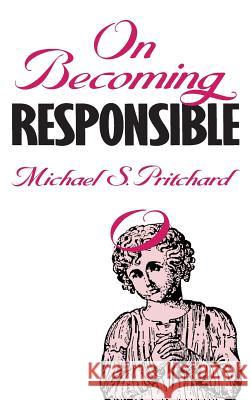On Becoming Responsible » książka
topmenu
On Becoming Responsible
ISBN-13: 9780700604449 / Angielski / Twarda / 1991 / 288 str.
Michael Pritchard's study of individual morality is set in the trenches, in the valley of life itself. The moral agent he describes is real, not one of the rarified, rational characters portrayed in most ethics texts. Thus the view of morality Pritchard presents in these eleven essays is pluralistic, complex, and down-to-earth.
Pritchard rejects the premise that moral development begins in self-interest, citing evidence of empathy and moral connectedness in very young children. He provides a deliberate and convincing argument for a new starting point for the discussion of moral development, one in which self-interest and empathy are innate and equally essential groundings for individual morality. He then builds a comprehensive framework for tracing moral development that allows human morality to be grounded in both reason and emotion, and recognizes the importance to morality of justice and rights as well as caring and responsibility. Pritchard's work is both a product of and a contribution to the field of moral psychology that began in the 1960s as a blending of philosophical theories on morality and ethics with insights from psychological theory on human development and moral behavior. Through his essays run the common threads of moral education, the complexity of ingredients and influences in moral life, and the concept of personal integrity. "Pritchard displays a remarkable, and sometimes ingenious, sensitivity to the fabric of the moral life. Reading through this work is rather like being on a moral 'dig' where one precious gem after the other is turned up. . . . It deals with the moral life as it is actually lived. Virtually any person on the street could identify with Pritchard's moral agents, whereas the moral agents in the texts of most philosophers turn out to be rarified creatures that no one would ever supposed had walked the earth. . . . Pritchard's discussion of Kohlberg is masterful and extraordinarily subtle--a most important and very significant addition to the literature on this central figure in moral development. The chapter "Accountability, Understanding, and Sentiments" is a ground-breaking piece."--Laurence Thomas, author of Living Morally: A Psychology of Moral Character. "Offers a thoughtful, imaginative, and responsible consideration of a broad range of issues in ethics that have engaged contemporary philosophers and psychologists."--Gareth Matthews, author of Philosophy and the Young Child and Dialogues with Young Children.










